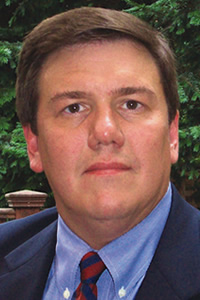
Ted Niblock
BioCycle September 2015
The greatest challenge for the biogas industry, and renewable energy in general, is to break the preconception held by so many that it is experimental, risky, super-expensive, dependent on government subsidies, and a plot by liberals to crush small businesses with high energy prices. These are all easily proven to be incorrect, so why is communicating that such a challenge?
One possible explanation, or at least maybe part of it, lies in understanding who these skeptics really are, and why advocates for biogas currently have so much difficulty communicating with them. In a recent discussion with a communications executive, I was introduced to a theory I had not previously encountered. “Values Modes” divides people into three main categories and then analyzes which values and needs drive each group’s behavior. By understanding a group’s needs, the theory goes, one can communicate more effectively with them and seek to persuade them to change a view based on their own priorities.
Like so much other behavioral science type stuff, it seems at first glance to be common sense. But closer examination reveals a tremendous amount of valuable research. Most has been done by Chris Rose, a campaign strategist and researcher in the United Kingdom. In his book, What Makes People Tick: The Three Hidden Worlds of Settlers, Prospectors and Pioneers, Rose points out that people, it seems, can be persuaded to do the same good thing for very different reasons. He identifies three basic values systems: Settlers, Prospectors and Pioneers. Each group’s sensibilities are informed by a different set of values, and a different set of needs.
Settlers need and value security, and are willing to sacrifice new ideas or solutions to reduce risk. This is not to say they are luddites or reactionaries, just extremely cautious about jumping from the frying pan into the fire. Attempts to improve often fail, in their minds, and the status quo, as bad as it may seem, often looks better in retrospect. Settlers are not inherently hostile to renewable energy, but they are susceptible to the misleading statements above, and prone to fear that new ideas will bring less security, unintended consequences, and are only justified by extreme crisis.
Prospectors have a need for success, self-esteem and the respect of others. They seek achievement and are highly motivated. They are, as Rose puts it, “maximizers.” Prospectors are enthusiastic about renewable energy when there is obvious and attainable personal gain or profit. That description might seem to imply a less desirable set of values, but in American society this is untrue. We have always and will always rely on these values and motivations to progress, and we respect them as integral to our personal freedoms.
Pioneers have a need for an ethical system, value innovation, question the status quo, and seek comprehensive solutions despite those solutions being new and complicated. Pioneers are generally receptive to renewable energy and other environmental issues.
To take the American Revolution as an example, Pioneers would have valued the new experiment with democracy, the chance to try a bold new improvement to government. Prospectors would have seen the opportunity for gain in commercial independence from the crown, and Settlers would have been leery of the entire enterprise, and often probably royalists or at least nonparticipants. All three values are prominently enshrined in our country’s foundational documents. The preamble to the Constitution endeavors to “provide for the common defense” (a reassurance to settlers) and “promote the general welfare” (the big picture goal of the Pioneers). The Declaration of Independence gives us “the pursuit of happiness,” which promises the Prospectors the opportunity to succeed as they so desire.
Convincing The Settlers
So if advocates of renewable energy as social change are Pioneers, and the renewable energy sector is dependent on the industry and drive of Prospectors, how do those groups convince the Settlers to also support the transition to a green energy future?
Well, Pioneers start by not saying things like “green energy future,” which sounds almost like a spaceship. Lofty ideals and futuristic imagery are not going to be effective. We’ve already seized upon “energy security” as a concept, but it is not getting us all the way there. Pioneers must find the most unlikely allies possible, and stick with them. Religious leaders, the military, and businesses with long term planning needs (especially insurance carriers) can be helpful allies. Pioneers occasionally team up with these Settler-friendly groups, but must be more focused and consistent in their coordination.
Prospectors must recognize that the opportunity for sky-high growth and profit from taking big risks on the future does not appeal to Settlers. In fact, it scares them. Communities of Settlers in America support private enterprise in general, and adopt pro-business rhetoric, but they are extremely risk averse and do not like new ideas, even profit motivated ones. I confess to not having as many suggestions here, but one idea might be to highlight the huge risks involved in fossil fuel energy.
Both Pioneers and Prospectors need to adopt communication strategies which appeal to Settlers, not themselves. A good rule of thumb might be: If the messaging makes any sense to either Pioneers or Prospectors, it is not going to resonate with Settlers. Many communications strategies exist to sell things to Settlers (respected authority figures, plain language, charity, traditional values, family values). All need a more prominent place in outreach for biogas and renewable energy.
Ted Niblock develops biogas projects for NewAg Development.












